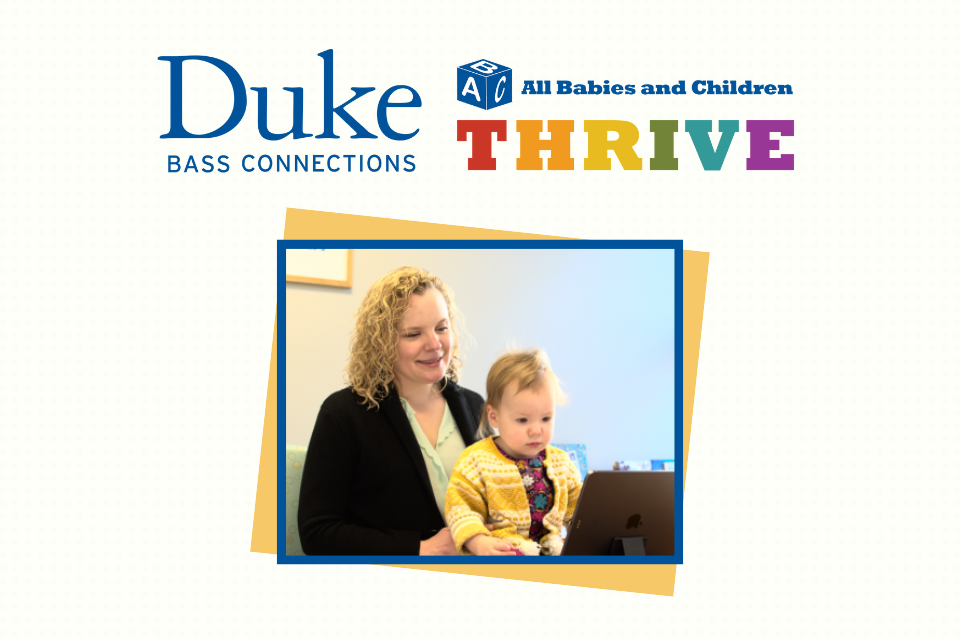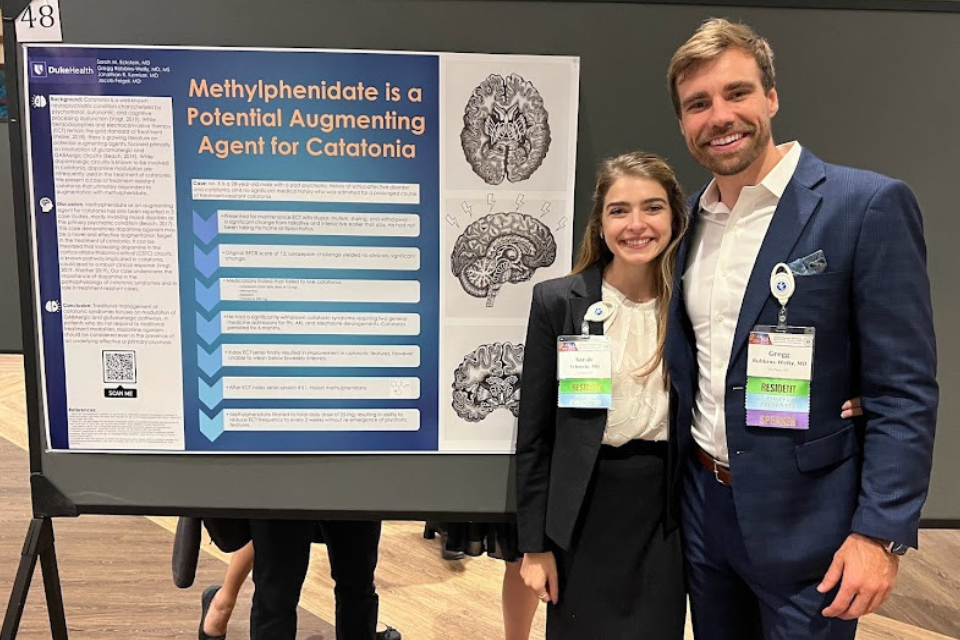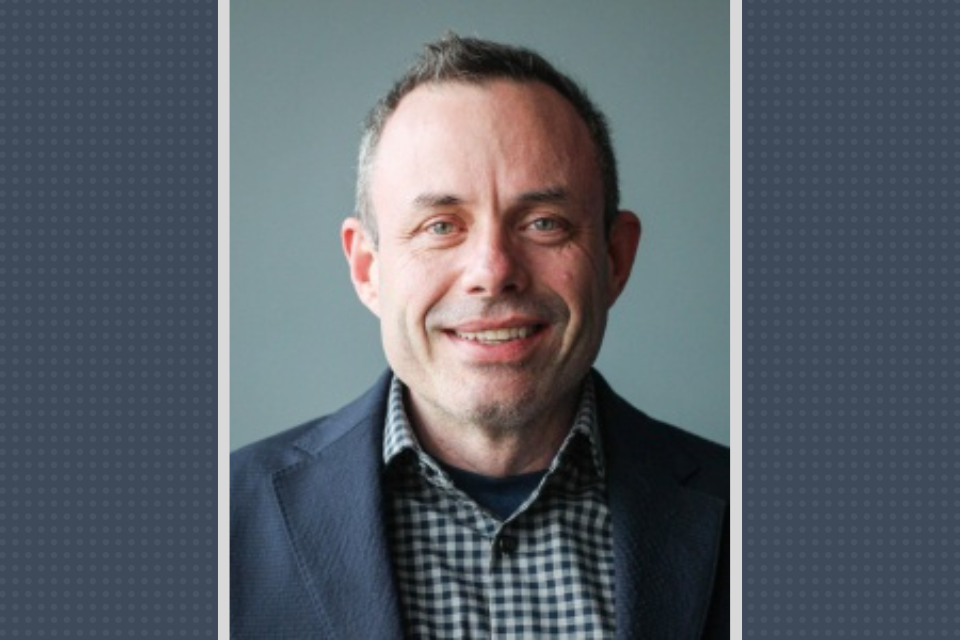Check out our news archive below to learn more about what’s happening in Duke Psychiatry & Behavioral Sciences!
Digital Caregiver Autism Coaching App Gets Funding from Bass Connections
All Babies and Children Thrive (ABC Thrive), an initiative of Bass Connections, has awarded follow-on grants to two interdisciplinary teams addressing barriers to services and supporting well-being for young children. One of these grants went to a team at the Duke Center for Autism & Brain Development, to integrate digital autism caregiver coaching into their screening and outcome monitoring tool, the SenseToKnow app. The app will provide information about best practices for early intervention and allow caregivers to track the child’s developmental progress.
Blue Devil of the Week: Creating an Inclusive Climate for those Facing Trauma
Whether Duke Psychiatry's Angela Tunno, PhD, MS, is working with young patients at Duke or helping community-level systems serve trauma survivors with the Center for Child & Family Health, Dr. Tunno works to help children and families find healing. In recognition of her excellent and impactful work, she was named Blue Devil of the Week by Working@Duke this week.
Developing & Testing an Innovative Pain Management Alternative to Opioids
Chronic pain is one of the most common reasons adults in the U.S. seek medical care. Opiates are often used as a pharmacological intervention, but they present a risk of substance use disorder. In an effort to develop an alternative form of treatment, Duke Psychiatry's Eric Elbogen, PhD, and his team turned to “neurofeedback,” or electroencephalograph (EEG) biofeedback treatment.
Dzirasa Wins Prestigious NIH Pioneer Award to Develop New Way To Fine-Tune Brain Circuits
The $3.5 million award will adapt a cell-linker protein in humans that improves crosstalk between brain regions in hopes of rewiring circuits that go awry in psychiatric disorders. The NIH has recognized Dzirasa as one of just eight scholars for the 2022 Director’s Pioneer Award, which specifically funds promising and often paradigm-shifting projects by exceptional researchers.
Three Ways to Avoid Getting Overcommitted
Several Duke experts, including Jane Gagliardi, MD, MHS, professor of psychiatry and behavioral sciences, share some strategies for balancing ambitions with available time and energy.
Strong Duke Showing at the AMP Annual Meeting
Duke’s Internal Medicine-Psychiatry (Med-Psych) program had a strong showing at the 2022 Association of Medicine and Psychiatry (AMP) Annual Meeting in Atlanta, GA, on September 29 to October 1.
Scientists Create Non-Psychedelic Compound with Same Anti-depressant Effect
Published in Nature, this research in animal models show it’s possible to create a compound that hits the same exact target as psychedelic drugs hit – the 5-HT2A serotonin receptors on the surface of specific neurons – but does not cause the same psychedelic effects when given to mice. Duke Psychiatry's William Wetsel, PhD, was a senior author on the paper.
Large Survey Identifies Toll of Pandemic on Health Care Worker Exhaustion
Duke Psychiatry's Bryan Sexton, PhD, led a study involving more than 30,000 health care workers to track the emotional impact of the pandemic. The researchers found increases in emotional exhaustion from about 32% in 2019, before COVID hit, to 40% by January 2022. The study was published in JAMA Network Open on Sept. 21.
Joseph McClernon Named Interim Co-Director for Duke CTSA Team Science Core
Joseph McClernon, PhD, Co-Director of the CTSI’s Integration and Strategic Partnerships Pillar, has been named the Interim Co-Director for the Duke CTSA Team Science Core. Dr. McClernon is a professor in Psychiatry and Behavioral Sciences.
Yun Wang among Duke Science & Technology Seed Grant Awardees
The Office for Research & Innovation has awarded funding to eight, interdisciplinary projects as part of the inaugural Duke Science and Technology (DST) Launch Seed Grant Program. Duke Psychiatry assistant professor Yun Wang, PhD, was among the awardees.









